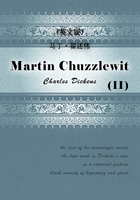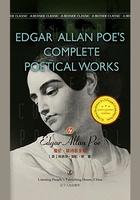Hester had been prevented by her mother's indisposition from taking Philip's letter to the Fosters, to hold a consultation with them over its contents.
Alice Rose was slowly failing, and the long days which she had to spend alone told much upon her spirits, and consequently upon her health.
All this came out in the conversation which ensued after reading Hepburn's letter in the little parlour at the bank on the day after Sylvia had had her confidential interview with Jeremiah Foster.
He was a true man of honour, and never so much as alluded to her visit to him; but what she had then told him influenced him very much in the formation of the project which he proposed to his brother and Hester.
He recommended her remaining where she was, living still in the house behind the shop; for he thought within himself that she might have exaggerated the effect of her words upon Philip; that, after all, it might have been some cause totally disconnected with them, which had blotted out her husband's place among the men of Monkshaven; and that it would be so much easier for both to resume their natural relations, both towards each other and towards the world, if Sylvia remained where her husband had left her—in an expectant attitude, so to speak.
Jeremiah Foster questioned Hester straitly about her letter: whether she had made known its contents to any one. No, not to any one. Neither to her mother nor to William Coulson? No, to neither.
She looked at him as she replied to his inquiries, and he looked at her, each wondering if the other could be in the least aware that a conjugal quarrel might be at the root of the dilemma in which they were placed by Hepburn's disappearance.
But neither Hester, who had witnessed the misunderstanding between the husband and wife on the evening, before the morning on which Philip went away, nor Jeremiah Foster, who had learnt from Sylvia the true reason of her husband's disappearance, gave the slightest reason to the other to think that they each supposed they had a clue to the reason of Hepburn's sudden departure.
What Jeremiah Foster, after a night's consideration, had to propose was this; that Hester and her mother should come and occupy the house in the market-place, conjointly with Sylvia and her child. Hester's interest in the shop was by this time acknowledged. Jeremiah had made over to her so much of his share in the business, that she had a right to be considered as a kind of partner; and she had long been the superintendent of that department of goods which were exclusively devoted to women. So her daily presence was requisite for more reasons than one.
Yet her mother's health and spirits were such as to render it unadvisable that the old woman should be too much left alone; and Sylvia's devotion to her own mother seemed to point her out as the very person who could be a gentle and tender companion to Alice Rose during those hours when her own daughter would necessarily be engaged in the shop.
Many desirable objects seemed to be gained by this removal of Alice: an occupation was provided for Sylvia, which would detain her in the place where her husband had left her, and where (Jeremiah Foster fairly expected in spite of his letter) he was likely to come back to find her; and Alice Rose, the early love of one of the brothers, the old friend of the other, would be well cared for, and under her daughter's immediate supervision during the whole of the time that she was occupied in the shop.
Philip's share of the business, augmented by the money which he had put in from the legacy of his old Cumberland uncle, would bring in profits enough to support Sylvia and her child in ease and comfort until that time, which they all anticipated, when he should return from his mysterious wandering—mysterious, whether his going forth had been voluntary or involuntary.
Thus far was settled; and Jeremiah Foster went to tell Sylvia of the plan.
She was too much a child, too entirely unaccustomed to any independence of action, to do anything but leave herself in his hands. Her very confession, made to him the day before, when she sought his counsel, seemed to place her at his disposal. Otherwise, she had had notions of the possibility of a free country life once more—how provided for and arranged she hardly knew; but Haytersbank was to let, and Kester disengaged, and it had just seemed possible that she might have to return to her early home, and to her old life. She knew that it would take much money to stock the farm again, and that her hands were tied from much useful activity by the love and care she owed to her baby. But still, somehow, she hoped and she fancied, till Jeremiah Foster's measured words and carefully-arranged plan made her silently relinquish her green, breezy vision.
Hester, too, had her own private rebellion—hushed into submission by her gentle piety. If Sylvia had been able to make Philip happy, Hester could have felt lovingly and almost gratefully towards her; but Sylvia had failed in this.
Philip had been made unhappy, and was driven forth a wanderer into the wide world—never to come back! And his last words to Hester, the postscript of his letter, containing the very pith of it, was to ask her to take charge and care of the wife whose want of love towards him had uprooted him from the place where he was valued and honoured.
It cost Hester many a struggle and many a self-reproach before she could make herself feel what she saw all along—that in everything Philip treated her like a sister. But even a sister might well be indignant if she saw her brother's love disregarded and slighted, and his life embittered by the thoughtless conduct of a wife! Still Hester fought against herself, and for Philip's sake she sought to see the good in Sylvia, and she strove to love her as well as to take care of her.
With the baby, of course, the case was different. Without thought or struggle, or reason, every one loved the little girl. Coulson and his buxom wife, who were childless, were never weary of making much of her. Hester's happiest hours were spent with that little child. Jeremiah Foster almost looked upon her as his own from the day when she honoured him by yielding to the temptation of the chain and seal, and coming to his knee; not a customer to the shop but knew the smiling child's sad history, and many a country-woman would save a rosy-cheeked apple from out her store that autumn to bring it on next market-day for 'Philip Hepburn's baby, as had lost its father, bless it.'
Even stern Alice Rose was graciously inclined towards the little Bella; and though her idea of the number of the elect was growing narrower and narrower every day, she would have been loth to exclude the innocent little child, that stroked her wrinkled cheeks so softly every night in return for her blessing, from the few that should be saved. Nay, for the child's sake, she relented towards the mother; and strove to have Sylvia rescued from the many castaways with fervent prayer, or, as she phrased it, 'wrestling with the Lord'.
Alice had a sort of instinct that the little child, so tenderly loved by, so fondly loving, the mother whose ewe-lamb she was, could not be even in heaven without yearning for the creature she had loved best on earth; and the old woman believed that this was the principal reason for her prayers for Sylvia; but unconsciously to herself, Alice Rose was touched by the filial attentions she constantly received from the young mother, whom she believed to be foredoomed to condemnation.
Sylvia rarely went to church or chapel, nor did she read her Bible; for though she spoke little of her ignorance, and would fain, for her child's sake, have remedied it now it was too late, she had lost what little fluency of reading she had ever had, and could only make out her words with much spelling and difficulty. So the taking her Bible in hand would have been a mere form; though of this Alice Rose knew nothing.
No one knew much of what was passing in Sylvia; she did not know herself. Sometimes in the nights she would waken, crying, with a terrible sense of desolation; every one who loved her, or whom she had loved, had vanished out of her life; every one but her child, who lay in her arms, warm and soft.
But then Jeremiah Foster's words came upon her; words that she had taken for cursing at the time; and she would so gladly have had some clue by which to penetrate the darkness of the unknown region from whence both blessing and cursing came, and to know if she had indeed done something which should cause her sin to be visited on that soft, sweet, innocent darling.
If any one would teach her to read! If any one would explain to her the hard words she heard in church or chapel, so that she might find out the meaning of sin and godliness!—words that had only passed over the surface of her mind till now! For her child's sake she should like to do the will of God, if she only knew what that was, and how to be worked out in her daily life.
But there was no one she dared confess her ignorance to and ask information from. Jeremiah Foster had spoken as if her child, sweet little merry Bella, with a loving word and a kiss for every one, was to suffer heavily for the just and true words her wronged and indignant mother had spoken. Alice always spoke as if there were no hope for her; and blamed her, nevertheless, for not using the means of grace that it was not in her power to avail herself of.
And Hester, that Sylvia would fain have loved for her uniform gentleness and patience with all around her, seemed so cold in her unruffled and undemonstrative behaviour; and moreover, Sylvia felt that Hester blamed her perpetual silence regarding Philip's absence without knowing how bitter a cause Sylvia had for casting him off.
The only person who seemed to have pity upon her was Kester; and his pity was shown in looks rather than words; for when he came to see her, which he did from time to time, by a kind of mutual tacit consent, they spoke but little of former days.
He was still lodging with his sister, widow Dobson, working at odd jobs, some of which took him into the country for weeks at a time. But on his returns to Monkshaven he was sure to come and see her and the little Bella; indeed, when his employment was in the immediate neighbourhood of the town, he never allowed a week to pass away without a visit.
There was not much conversation between him and Sylvia at such times. They skimmed over the surface of the small events in which both took an interest; only now and then a sudden glance, a checked speech, told each that there were deeps not forgotten, although they were never mentioned.
Twice Sylvia—below her breath—had asked Kester, just as she was holding the door open for his departure, if anything had ever been heard of Kinraid since his one night's visit to Monkshaven: each time (and there was an interval of some months between the inquiries) the answer had been simply, no.
To no one else would Sylvia ever have named his name. But indeed she had not the chance, had she wished it ever so much, of asking any questions about him from any one likely to know. The Corneys had left Moss Brow at Martinmas, and gone many miles away towards Horncastle. Bessy Corney, it is true was married and left behind in the neighbourhood; but with her Sylvia had never been intimate; and what girlish friendship there might have been between them had cooled very much at the time of Kinraid's supposed death three years before.
One day before Christmas in this year, 1798, Sylvia was called into the shop by Coulson, who, with his assistant, was busy undoing the bales of winter goods supplied to them from the West Riding, and other places. He was looking at a fine Irish poplin dress-piece when Sylvia answered to his call.
'Here! do you know this again?' asked he, in the cheerful tone of one sure of giving pleasure.
'No! have I iver seen it afore?'
'Not this, but one for all t' world like it.'
She did not rouse up to much interest, but looked at it as if trying to recollect where she could have seen its like.
'My missus had one on at th' party at John Foster's last March, and yo' admired it a deal. And Philip, he thought o' nothing but how he could get yo' just such another, and he set a vast o' folk agait for to meet wi' its marrow; and what he did just the very day afore he went away so mysterious was to write through Dawson Brothers, o' Wakefield, to Dublin, and order that one should be woven for yo'. Jemima had to cut a bit off hers for to give him t' exact colour.'
Sylvia did not say anything but that it was very pretty, in a low voice, and then she quickly left the shop, much to Coulson's displeasure.
All the afternoon she was unusually quiet and depressed.
Alice Rose, sitting helpless in her chair, watched her with keen eyes.
At length, after one of Sylvia's deep, unconscious sighs, the old woman spoke:
'It's religion as must comfort thee, child, as it's done many a one afore thee.'
'How?' said Sylvia, looking up, startled to find herself an object of notice.
'How?' (The answer was not quite so ready as the precept had been.) 'Read thy Bible, and thou wilt learn.'
'But I cannot read,' said Sylvia, too desperate any longer to conceal her ignorance.
'Not read! and thee Philip's wife as was such a great scholar! Of a surety the ways o' this life are crooked! There was our Hester, as can read as well as any minister, and Philip passes over her to go and choose a young lass as cannot read her Bible.'
'Was Philip and Hester——'
Sylvia paused, for though a new curiosity had dawned upon her, she did not know how to word her question.
'Many a time and oft have I seen Hester take comfort in her Bible when Philip was following after thee. She knew where to go for consolation.'
'I'd fain read,' said Sylvia, humbly, 'if anybody would learn me; for perhaps it might do me good; I'm noane so happy.'
Her eyes, as she looked up at Alice's stern countenance, were full of tears.
The old woman saw it, and was touched, although she did not immediately show her sympathy. But she took her own time, and made no reply.
The next day, however, she bade Sylvia come to her, and then and there, as if her pupil had been a little child, she began to teach Sylvia to read the first chapter of Genesis; for all other reading but the Scriptures was as vanity to her, and she would not condescend to the weakness of other books. Sylvia was now, as ever, slow at book-learning; but she was meek and desirous to be taught, and her willingness in this respect pleased Alice, and drew her singularly towards one who, from being a pupil, might become a convert.
All this time Sylvia never lost the curiosity that had been excited by the few words Alice had let drop about Hester and Philip, and by degrees she approached the subject again, and had the idea then started confirmed by Alice, who had no scruple in using the past experience of her own, of her daughter's, or of any one's life, as an instrument to prove the vanity of setting the heart on anything earthly.
This knowledge, unsuspected before, sank deep into Sylvia's thoughts, and gave her a strange interest in Hester—poor Hester, whose life she had so crossed and blighted, even by the very blighting of her own. She gave Hester her own former passionate feelings for Kinraid, and wondered how she herself should have felt towards any one who had come between her and him, and wiled his love away. When she remembered Hester's unfailing sweetness and kindness towards herself from the very first, she could better bear the comparative coldness of her present behaviour.
She tried, indeed, hard to win back the favour she had lost; but the very means she took were blunders, and only made it seem to her as if she could never again do right in Hester's eyes.
For instance, she begged her to accept and wear the pretty poplin gown which had been Philip's especial choice; feeling within herself as if she should never wish to put it on, and as if the best thing she could do with it was to offer it to Hester. But Hester rejected the proffered gift with as much hardness of manner as she was capable of assuming; and Sylvia had to carry it upstairs and lay it by for the little daughter, who, Hester said, might perhaps learn to value things that her father had given especial thought to.
Yet Sylvia went on trying to win Hester to like her once more; it was one of her great labours, and learning to read from Hester's mother was another.
Alice, indeed, in her solemn way, was becoming quite fond of Sylvia; if she could not read or write, she had a deftness and gentleness of motion, a capacity for the household matters which fell into her department, that had a great effect on the old woman, and for her dear mother's sake Sylvia had a stock of patient love ready in her heart for all the aged and infirm that fell in her way. She never thought of seeking them out, as she knew that Hester did; but then she looked up to Hester as some one very remarkable for her goodness. If only she could have liked her!
Hester tried to do all she could for Sylvia; Philip had told her to take care of his wife and child; but she had the conviction that Sylvia had so materially failed in her duties as to have made her husband an exile from his home—a penniless wanderer, wifeless and childless, in some strange country, whose very aspect was friendless, while the cause of all lived on in the comfortable home where he had placed her, wanting for nothing—an object of interest and regard to many friends—with a lovely little child to give her joy for the present, and hope for the future; while he, the poor outcast, might even lie dead by the wayside. How could Hester love Sylvia?
Yet they were frequent companions that ensuing spring. Hester was not well; and the doctors said that the constant occupation in the shop was too much for her, and that she must, for a time at least, take daily walks into the country.
Sylvia used to beg to accompany her; she and the little girl often went with Hester up the valley of the river to some of the nestling farms that were hidden in the more sheltered nooks—for Hester was bidden to drink milk warm from the cow; and to go into the familiar haunts about a farm was one of the few things in which Sylvia seemed to take much pleasure. She would let little Bella toddle about while Hester sate and rested: and she herself would beg to milk the cow destined to give the invalid her draught.
One May evening the three had been out on some such expedition; the country side still looked gray and bare, though the leaves were showing on the willow and blackthorn and sloe, and by the tinkling runnels, making hidden music along the copse side, the pale delicate primrose buds were showing amid their fresh, green, crinkled leaves. The larks had been singing all the afternoon, but were now dropping down into their nests in the pasture fields; the air had just the sharpness in it which goes along with a cloudless evening sky at that time of the year.
But Hester walked homewards slowly and languidly, speaking no word. Sylvia noticed this at first without venturing to speak, for Hester was one who disliked having her ailments noticed. But after a while Hester stood still in a sort of weary dreamy abstraction; and Sylvia said to her,
'I'm afeared yo're sadly tired. Maybe we've been too far.'
Hester almost started.
'No!' said she, 'it's only my headache which is worse to-night. It has been bad all day; but since I came out it has felt just as if there were great guns booming, till I could almost pray 'em to be quiet. I am so weary o' th' sound.'
She stepped out quickly towards home after she had said this, as if she wished for neither pity nor comment on what she had said.















